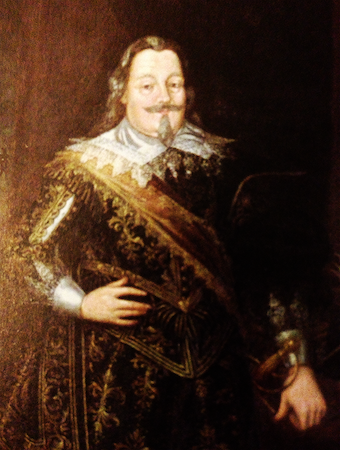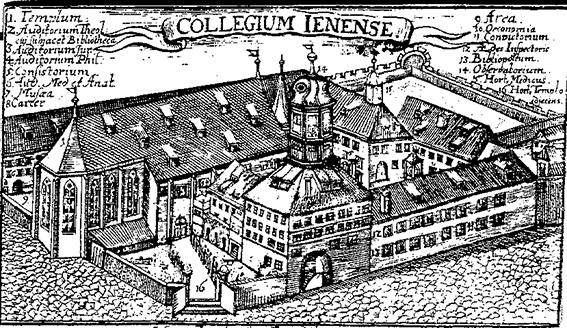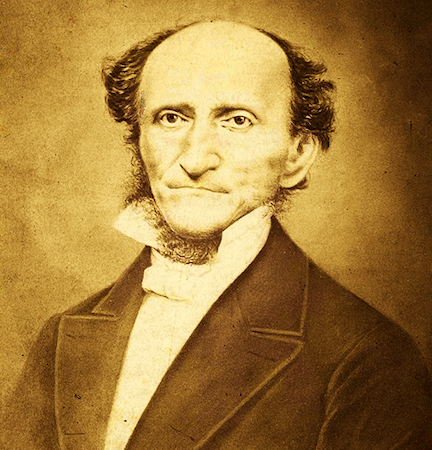

May, 1637
Grantville
"There's no sense in blaming yourself for it, Ryan," Dr. Jeff Adams said. "Meg has a congenital heart defect. Nobody is doing open-heart surgery down-time. Nobody will be for decades. That's just the way it is."
"But if I hadn't gotten her pregnant . . ."
"If she had died a virgin, she would still have died before she was twenty-five."
Ryan Baker looked down at his boots.
"That little boy has given her joy. Just take care of her. Keep her comfortable. There's nothing else to do."
****
Meg kept getting smaller. Ryan could see it. Turning to the others in the room, he said, "Out." Once they were gone, he slipped off his boots and climbed into the bed with her. She tried to move her head to where she liked to have it, tucked against his neck, under his chin. He helped her. Her light brown hair was smooth and slick.
After a few minutes, she opened her eyes and said, "I have been so happy."
A few minutes after that, Ryan realized that he might as well let the rest of them back in.
****
July, 1637
It hadn't been his intention to tear the congregation of St. Martin's in the Fields apart. He'd just wanted a monument for Meg. The biggest one he could afford. The biggest one that anybody in Grantville could carve. With angels and Bible verses all over it.
So he'd gone to the Ugolinis, of course.
They owned the stone monument works, didn't they?
What difference did it make that they were Italian Catholics? It had never made any difference to anyone before.
Not until Pastor Griep at St. Thomas had attacked the board of elders at St. Martin's for creeping unionism because they had permitted a Catholic-carved monument in a Lutheran graveyard. Church yard. Right next to the church.
Not that Pastor Griep didn't think of every possible reason to criticize St. Martin's, anyway. That had been going on ever since he came to town. He had disliked Ludwig Kastenmayer. In the interregnum since the old pastor's death, with the deadlock on choosing a successor, he had taken aim at the lay officials and, through them, at Count Ludwig Guenther. He was a spokesman or something for a Lutheran superintendent named Melchior Tilesius from Mühlhausen, up in the northern part of Thuringia, who was locked in a turf battle with Johann Rothmaler, the Lutheran superintendent in Schwarzburg-Rudolstadt.
Tilesius had a son-in-law in need of a good job. That might be relevant. It might not.
Then there was Frau Susanne Maria Brömel, the widow of someone named Elias Scheffel. Ryan had never met Scheffel; he had died a couple of years before Meg came along and turned him into a Lutheran. He'd been the chancellor for Count Ludwig Guenther. The widow had intervened. She had a pet candidate. She was also the stepmother of Pastor Rothmaler's wife.
After that, a guy named Wolfgang Radtke – the newspaper articles usually turned it into Latin and called him Ratichius – who was now secretary of education for the SoTF government down in Bamberg, got involved, as did his widowed patroness, Count Ludwig Guenther's aunt-by-marriage, who lived over at Kranichfeld and appeared to know every other influential old lady in the USE. They thought a different guy would be preferable.
So now, it seemed, after a vacancy of more than half a year, about a quarter of St. Martin's congregation had stalked off and joined St. Thomas.
The others were hanging in there, but it got harder every week not having a pastor available. One came over from Rudolstadt to give a sermon on Sundays, but as Joanie Smith complained, it wasn't the same thing at all.
Ryan stood there, looking at the monument, holding little David's hand.
****
"It's not even as if someone were out to deliberately sabotage the parish," Ludwig Kastenmayer's widow said. "On paper, every single one of the candidates is qualified. I haven't met them, but their resumes could be duplicates. Triplicates. Whatever. It's simply a case of, ‘it's not what you know; it's who you know.' "
****
"Joanie Smith keeps moaning that the vacancy is going on and on and on, and finding a replacement seems to be going nowhere, which is bad for the parish and worse for the school," Ryan summed up. "She's been teaching English at Countess Kate for a couple of years–those two girls from Suhl, Veronica and Mathilde, who are living with Joanie and Hank while they go to school here . . . their father sent them up from Suhl, he's that bigshot gunsmith Georg Weiss . . . talked her into joining."
"Let me think about this overnight," Hugh Lowe said. He was Ryan's boss at the Grantville-Rudolstadt-Saalfeld Railroad and Tramway Corporation. He wasn't Lutheran; he was Methodist. The former Chevy dealer now had an iron in every ground transportation fire in the SoTF and in quite a few in the rest of the USE and had no difficulty coming up with the math of Joanie Smith = Hal Smith's daughter-in-law; Hal Smith = a hook into air transport that I don't have yet. Hugh had been the president of the Grantville Chamber of Commerce, way back when.
He had one strong religious conviction (the others being, he admitted to himself, rather flexible, not to say nebulous): church fights weren't good for local business.
Young Ryan was coming along well, really well. He'd moved from trainee to junior executive in four years, even with all the time off he'd taken for poor little Meg's illness.
Through transportation, Hugh had connections. A network. Who in that network was Lutheran?
First he talked to Burton Vandiver at the office. Burton wasn't Lutheran, but his wife was a down-timer and a member out at St. Martin's.
Then he phoned Gary Lambert at the hospital. They'd gotten to know each other on the ambulance board. Gary was an up-timer and had switched his membership over to St. Thomas on the other side of town, but he'd probably have heard some things.
"Give me a couple of days to get back to you," Gary said. "I'd like to run this past my father-in-law who's the chancellor up at Weimar."
Gary duly got back to Hugh, who then phoned his probably biggest contact who might have a fish in this pond, Duke Johann Philipp of Saxe-Altenburg.
****
Meanwhile, Ryan was talking to the guys. The ones Ms. Mailey had tagged as the Group of Seven. They'd all joined St. Martin's on the same day and for the same reason. Flirt to convert, as someone put it. One of Al Green's sons, he thought. The clever one.
"I asked Hugh for input," Ryan said, "but I don't know if anything will come of it. Since then, I've got this idea. It looks to me that the main problem is that we have to wait for Count Ludwig Guenther to make up his mind. If we didn't have to wait for that, the board of elders could get a move on."

"Isn't it Count Ludwig Guenther's church?" Mitch Hobbs asked. "I've heard about cuius regio and all that."
Roland Worley shook his head. "They abolished that in the USE with the new constitution. It, cuius regio, meant that the count got to tell everybody that they had to be Lutheran. What we're dealing with here is cuius ecclesia or something, which probably isn't the right Latin. He can't tell people in what used to be his principality to be Lutherans any more. But he's still running a church synod, or whatever you'd call it, for the Lutherans who live in what used to be his principality. St. Martin's is built on his land, and he built it with his money. It's literally his church, so his superintendent gets to appoint the new pastor. Which I guess he would, except for all the outside meddling."
Roland knew exactly as much about the organization of down-time Lutheranism as he had learned in the catechism class he took two years earlier so that Rahel Rosina Dornheimer would marry him: i.e., nothing at all.
But, then, the other guys didn't know a jot or tittle more about it, so they accepted his analysis.
"This is what occurred to me," Ryan said. "If he can appoint the pastor because he owns the church, I was thinking that if he would agree, the parish could buy itself from him. We'd have to work out an installment plan and take out a mortgage. Which would mean finding a bank that would give us a mortgage, but if we can stop the bleed-off of people to St. Thomas, the congregation is big enough that there's plenty of income to pay it back on a reasonable schedule. We've already broken the news to the down-timers a long time ago that without a state church, none of their taxes come back to support the parish and they have to make it off the Sunday offerings. Every member might have to dig into their pockets a little deeper, but St. Martin's could make it work.
"That way, though, if we owned ourselves, the elders could look around at the various territorial churches and ask one of them for the kind of pastor we want. Not be held hostage any more."
"That kind of complicated idea is beyond me," Derek Blount said. "But if the rest of you want to try it, I'll sign on. Ursel might have some ideas."
"I'm positive," Mitch Hobbs said, "that Walpurga will have some ideas. Jim Fritz is still up in Erfurt and you all know what he's like. He won't do anything about this, but do you think Maria might sign on for him?"
"Probably, if Ursel asks her to," was Derek's answer. "They're cousins."
"Lisbet and I aren't exactly pillars of the parish," Errol Mercer said. "Except for playing music when they ask us. Then, all of a sudden, we're in good standing again in spite of our tendency to stay up late on Saturday night and sleep late on Sunday morning. Our names are on the membership list, though. I'll sign. What about Lew Jenkins?"
"Still in Erfurt, but as soon as his enlistment is over, he'll be back next year. He and Sabina have been saving every cent and will go into partnership with Manning and Myrna to expand the goat dairy. I'm sure Sabina will sign on for him."

They all thought about it for a while and then put Ryan and Roland on the train for Jena to talk to Carol Koch, on the theory that since she was teaching math at the university there, she had more connections to influential down-timers than any of the other up-time Lutherans.
Carol said that she would see what she could do. As an up-time ELCA Lutheran, she had felt a bit stranded among the proponents of Lutheran orthodoxy during her years teaching mathematics at the university. She remembered what she could and picked up a few concepts from Dean Johann Gerhard.
"I have, of course, also been fascinated to read the debates that surrounded the organization of the Missouri Synod in the 1840s. C. F. W. Walther must have been a remarkable man." Gerhard smiled. "I doubt that there's a Lutheran academic alive and awake today who hasn't read those papers from Herr Lambert's foot locker. I like that hymn, too. Erstanden, erstanden![2] A scholar and a poet."
Then she got in touch with Duke Albrecht of Saxe-Weimar who commented, "That's odd. My cousin Johann Philipp down at Saxe-Altenburg wrote me a letter about this just last week."
****
"If what you are really looking for is a pastor who will try to get along peaceably with all the other factions and all the multiple religious denominations in Grantville," Duke Johann Philipp recommended, "write to the faculty at Helmstedt, up in Brunswick. Someone who's been a student of Georgius Calixtus and Conrad Horneius. Someone they'll sponsor."
His recommendation was not, oh, surely not, in any way, affected by the long-time (as in several centuries of time) irritation of the Wettins at having the counts of Schwarzburg and their allodial landholdings mixed in amid his family's own Thuringian holdings.
Carol did more than write to the faculty at Helmstedt. She sent her up-time German-born husband to talk to them. Ron was just as detached from ecclesiastical matters as any run-of-the-mill up-time German who was technically Lutheran but actually secular, but he was entirely willing to do his wife a favor. He was pretty well-known as a mining engineer by now. People were willing to talk to him if he asked.
Justus Gesenius went from Helmstedt to talk to his good friend David Denicke at Herzberg. Who was at Herzberg because that was still the principal residence of the dukes of Brunswick, current events having greatly delayed their plans to build a larger and better palace at Hannover. David was the tutor of the sons of Duke George of Brunswick-Lüneburg. Who in turn was a supporter of the emperor and fighting on the Eastern Front in the emperor's wars.
The duke was very protective of his university at Helmstedt. Very proud of it. When Denicke's letter reached his military headquarters, he leaned his camp chair back, propped his booted feet up on the table, and smiled.
Helmstedt had experienced hard times in the past decade. Up to 1625, it had counted about 500 students. Then the plague hit, and the town lost a third of its population. The university had to close temporarily; it had never entirely recovered, but the new oil leases were certainly helping. Students were still going elsewhere, but soon they would be coming back, if only because of the remodeled and modernized dormitories. A few more prominent faculty members wouldn't hurt anything, either.
He smiled to himself. A man could certainly get a bit of payback against the orthodoxy of Wittenberg and Jena by placing a candidate from Helmstedt at St. Martin's. Right under the noses of the Jena theological faculty. In Grantville, the city of up-time miracles. Or, at least, very close to Grantville. He directed his ecclesiastical officials at home to get directly involved and be very, very, very cooperative with St. Martin's.
****
Count Ludwig Guenther, who had been spending most of his time in Magdeburg, deeply absorbed in federal politics, with only occasional visits home to Rudolstadt, bestirred himself to ask what was going on. Johann Rothmaler waffled. So did the Schwarzburg-Rudolstadt consistory. By the time they admitted what had been going on, the count's response was, "There's no point in digging ourselves a deeper hole than we're already in. Offer them a ninety-nine-year lease on the land and purchase of the buildings."
St. Martin's board of elders accepted the deal. The buildings might need to be moved or sold back to the count's heirs in ninety-nine years, but all of them would indubitably be dead by the time the reckoning came due.
****
The University of Helmstedt faculty got curious enough to send a delegation to St. Martin's, including Calixtus.
He enjoyed meeting Gary Lambert, the source of so many fascinating documents that had been in circulation since the Rudolstadt Colloquy. "I find it interesting, in an odd kind of way, to find myself so vehemently vilified by the supporters of strict Lutheran orthodoxy for things that I will not have done for another decade or more. For the time being, I count myself fortunate that Abraham Calov is still only in his early twenties, so no one takes him very seriously."
To welcome the visitors, the ladies of the parish put on a huge outdoor combination picnic/potluck in the driveway between the empty rectory and the absolutely packed school.
Athanasius Kircher, from St. Mary's downtown, dropped by to shake hands. Upon being introduced to Calixtus' teenage son, he said wryly, "I understand from my biography that we'll be friends in twenty years or so and that I'll provide some letters of introduction when you make a visit to Rome. Be sure to drop me a note when you need them."
Charles Vandine also stopped in to introduce himself and demonstrate that, "Presbyterians don't all have horns, a forked tail, and carry a pitchfork."
Calixtus laughed. "It appears to be my concurrence with that view that caused about half of my life's tribulations. The other half having been caused by my belief that not all Roman Catholics do, either."
While the professors glad-handed, Denicke met with the board of elders and the alleged ‘group of seven.'
"You don't need an academic type, I think. You need a parish pastor. Preferably not an elderly man, this time, or you'll have the whole thing to do again in a few years. Not that a long-continued earthly life is certain for those of us who are in our 30s, but it is more likely than for those who are in their 70s."
Generally, the board agreed.
"I have a good friend," Denicke said.
They winced.
"No, hear me out, please."
****
Duke Georg counted a bit of coup when St. Martin's voted to join the territorial church of Brunswick and extended a "call" to a Helmstedt alumnus to be their pastor. He recommended that the Helmstedt faculty send out feelers to see if any other congregations in the SoTF might be interested.
****
"The icing on the cake for the parish," Martin Kastenmayer informed his sisters Andrea and Dina, "is that this young man, Simon Horst is his name, went along with Denicke on his grand tour. He couldn't have afforded it on his own; he went to Latin school on a scholarship and barely scraped together enough money to attend the university at Helmstedt right next door to his home village. But Denicke at age 19 did want a grand tour, didn't want a tutor, and Denicke's father thought that a nice young man almost guaranteed not to get young David into trouble was the best alternative companion, so he covered the costs. Dear old dad also specified ‘Protestants only.' Off they went. Visited a few Huguenot strongholds in France. Passed through Holland for a few months. Then plopped themselves down in England for the rest of the time. Simon Horst's completely fluent in down-time English and having no trouble adapting to the up-time accent."
****
Even old Count Anton Heinrich, who was the working manager of Schwarzburg-Sondershausen, came down for the installation, probably for the purpose of experiencing a little Schadenfreude at the discomfiture of his cousin of Schwarzburg-Rudolstadt. Also, possibly, to acquire a bit of insight as to what strange things could happen to one's administrative set-up when one was no longer precisely a ruling count any more: a count, still, if one had not renounced one's rank, but not ruling.
"He's 65 if he's a day," Salome said anxiously to the ladies of the parish, "so make sure that there's a comfortable chair. Also, treat the lady on his arm as if she were his legal wife and give her a chair. The whole thing has been terribly embarrassing for the Offeney family for the past 35 years, so we shouldn't do anything to make them feel worse now. He'll probably never stop trying to get their children ennobled."
Count Ludwig Guenther and Countess Emilie attended to be gracious. Superintendent Rothmaler attended because the count told him to. The superintendent's wife's stepmother, who still had a protégé to place, attended in order to eyeball the health of the remaining pastors in the superintendency so she could calculate where the next vacancy would most likely occur.
She had her chance. In addition to another delegation from Helmstedt, there were over sixty pastors, or their substitutes or deacons, from the Schwarzburg-Rudolstadt superintendency bidding farewell to a parish that had been, however briefly, one of theirs. Several of them were quite elderly, so the parish borrowed enough chairs for all of the above.
The installation also featured music by the students of Countess Katharina the Heroic. To down-time ears, something over 250 children from the first through eighth grades, on bleachers in the driveway, letting loose, at full volume, on "Standing on the Promises"[3] as accompanied by Lisbet Hercher's dance band was sheer cacophony. Pretty much, for the ears of listening up-timers, it was also sheer cacophony.

The rest of the rite was thankfully held indoors and featured better musical taste. There was still no organ in the church, but they borrowed a piano. They honored C. F. W. Walther by assigning their best soloist to his hymn.[4]
The only thing missing was a clerical family to welcome. Pastor Horst, never having received more than a minimum stipend in his previous assistant-pastor assignments, had never felt free to raise the hopes of any young woman by the slightest proffer of courtship.
The women of the parish had started to mention various possible ideal brides to one another even before the new pastor moved into the rectory. There were quite a few suggestions.
Joanie introduced him to her charge Veronica Weiss and stood back to see if things would take their natural course. Her father wasn't a pastor or teacher, of course, but as far as Joanie was concerned, that was a good thing. These clergy families, all marrying each other's daughters and sisters, were starting to get as inbred as the nobles.
****
Ryan Baker, little David in his arms, came up to Salome Piscatora, asking if Frau Kastenmayer would please come with him to see Meg's monument.
"I never meant to start this ball rolling. I just wanted there to be angels watching over her for all of eternity."
****
In Jena, Salome shook her head sadly at Martin. "He is doing very well you know, financially, young Baker is. Logically, he must marry again. He will need a wife to run his household and care for the boy."
"And?" Martin raised his eyebrows.
"I feel so sorry for the second wife he chooses. Whoever she may be. However soon. He would soon have outgrown little Magdalena, if she had lived. Later on, if she had lived longer, I am afraid that their marriage might have had problems. But since she has died so young, she will always be there in his heart. Close to perfect. Competition that no living woman can hope to match."
She shook her head again and turned back to the hearth.
****
[1] https://www.youtube.com/watch?reload=9&v=buJbqfD9NjA
[2] https://www.youtube.com/watch?v=6QKdyCQ5-jU
[3] https://www.youtube.com/watch?v=OF8wWlPYPpk
[4] https://www.youtube.com/watch?v=STN9K1U64TM